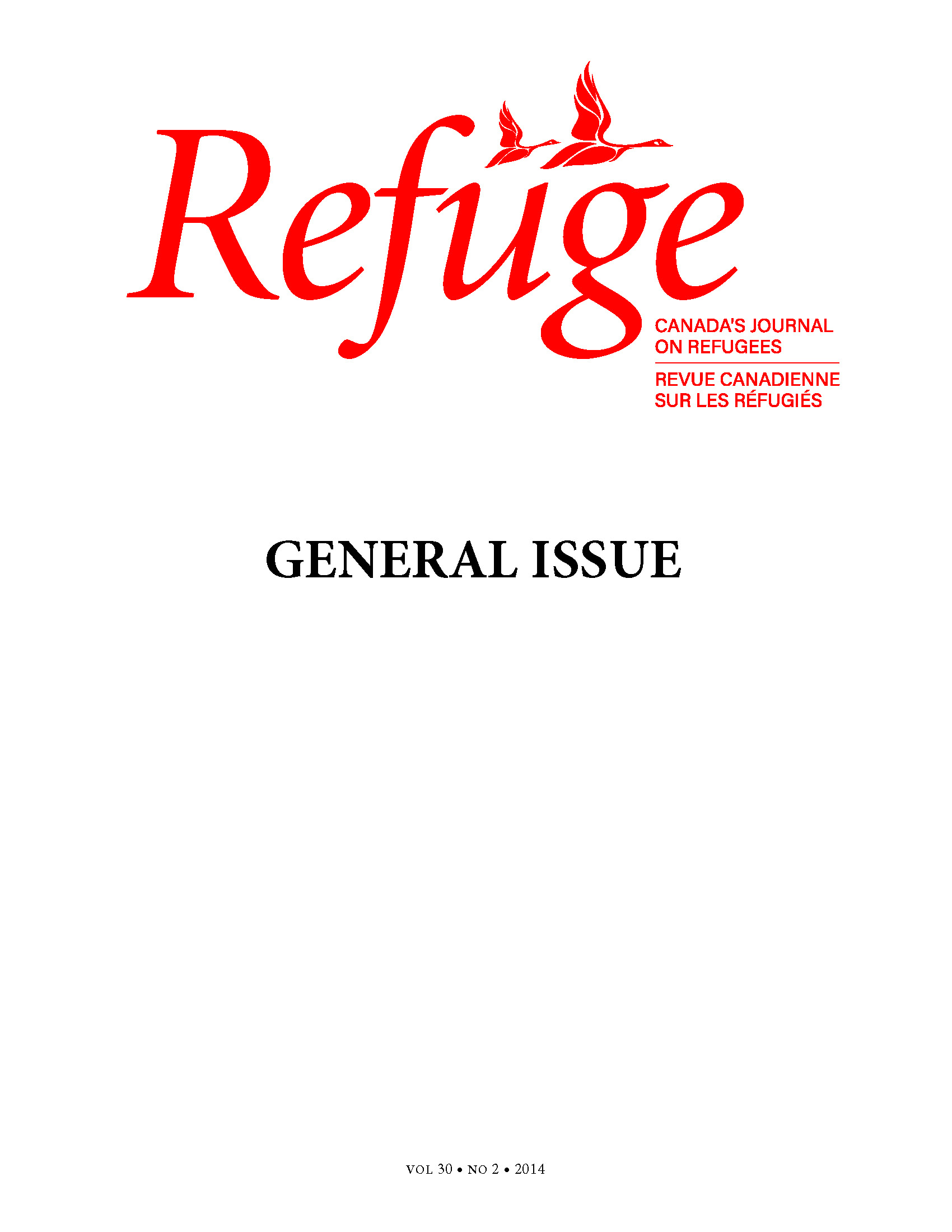Arrested Development? UNHCR, ILO, and the Refugees’ Right to Work
DOI:
https://doi.org/10.25071/1920-7336.39615Keywords:
United Nations High Commissioner for Refugees, UNHCR, International Labour Organization, ILO, forced migration, governance, inter-agency cooperation, international organizations, power dynamics, bureaucratic pathologies, right to workAbstract
This article contributes to literature assessing power dynamics in the emerging global migration governance. Drawing on Barnett and Finnemore’s analysis of bureaucratic culture in international organizations, it investigates inter-agency cooperation between the Office of the United Nations High Commissioner for Refugees and the International Labour Organization in the promotion of refugees’ right to work in the last two decades. While the mandate and activities of both organizations appear to significantly intersect in the promotion of this right, practical constraints related to states’ diverging interests, differences in institutional structure, and discursive ambivalence in the situation of the refugee worker limit coordination and effectiveness.
Metrics
Downloads
Published
How to Cite
Issue
Section
License
Copyright (c) 2014 Adèle Garnier

This work is licensed under a Creative Commons Attribution-NonCommercial 4.0 International License.
Refuge authors retain the copyright over their work, and license it to the general public under the Creative Commons Attribution-Non Commercial License International (CC BY-NC 4.0). This license allows for non-commercial use, reproduction and adaption of the material in any medium or format, with proper attribution. For general information on Creative Commons licences, visit the Creative Commons site. For the CC BY-NC 4.0 license, review the human readable summary.








